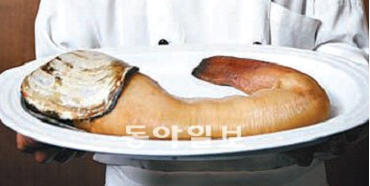1. BILATERAL/MULTILATERAL ISSUES
(Yonhap Interview) S. Korea-Australia FTA to benefit both countries: Rudd [English, CSY]
http://english.yonhapnews.co.kr/n_interview/2011/05/30/36/4801000000AEN20110530007200315F.HTML
Summary: A free trade agreement (FTA) between South Korea and Australia would benefit both nations and should be concluded by the end of this year, Australia's foreign minister said. The remarks by Foreign Minister Kevin Rudd came after South Korean President Lee Myung-bak and Australian Prime Minister Julia Gillard agreed in April to complete negotiations for the deal within this year, the 50th anniversary of diplomatic relations between the nations.
Agriculture, the big trade off for the Korea-Mexico FTA [English, CSY]
http://www.koreaherald.com/national/Detail.jsp?newsMLId=20110529000279
Summary: Mexico, like Korea, is a country heavily dependent on exports to sustain its economic growth, but the two countries are currently not seeing eye-to-eye over a possible trade deal. For both countries, it is not as simple as previous free trade agreements signed with other economies. Only recently has Korea entered the free trade agreement game while Mexico has signed FTAs with more than 50 countries, including Japan, putting more than 90 percent of its trade under free trade agreements. There are several reasons why the Korea-Mexico FTA has not moved ahead: one is that Korean companies point the finger at Mexico’s manufacturing sector while agriculture remains a hot issue in Korea.
2. LIVESTOCK ISSUES
S. Korea to ban use of antibiotics in animals feed [English, CSY]
http://english.yonhapnews.co.kr/business/2011/05/31/0501000000AEN20110531002200320.HTML
Summary: South Korea plans to ban the mixing of antibiotics with animal feed from July in an effort to raise consumer trust in the safety of livestock products, the government said Tuesday. South Korea allowed 44 types of antibiotics to be mixed with feed before 2005, but it has gradually cut the number since then as scientists warn of serious side effects when livestock receive too many antibiotics.
3. MARKETING ISSUES
Dongsuh Food to Launch Capsule Espresso Business [Korean, OSY]
http://www.hankyung.com/news/app/newsview.php?aid=2011052971341&sid=0104&nid=004<ype=1
Summary: Dongsuh Food, the leading supplier of instant coffee mixes in Korea, announced on May 30 that it will launch capsule espresso products and machine in June. Dongsuh will start with trade customers but will additionally launch lines for family customers as early as in January next year. Products that Dongsuh will sell are from Craft Food, USA, which is half owned by Dongsuh.
Shilla Hotel Procures 'Elephant Clam (Geoduck)' from the U.S. [Korean, OSY]
http://news.donga.com/Economy/Market/3/0108/20110530/37657112/1
Summary: 'Elephant clam (Geoduck)', the largest and most expensive clam in the world, has been brought to Seoul by Shilla Hotel for the first time. This is the first outcome of 'luxury food stuff sourcing TFT' organized in the hotel in March this year. The purpose of the TFT group is to find new products that will replace existing luxury food ingredients from Japan, which have become unavailable since the earth quake earlier this year. Geoduck is exclusively produced in the clean water of North America. Each A-grade Geoduck sells as high as $200, and has been a hot item among leading Asian connorseurs. The Geoduck that Shilla Hotel offers is from Seattle area. One serving of Geoduck menu will be around $50, according to Shilla Hotel.

4. OTHER MISCELLANEOUS ISSUES
CJ puts gochujang on N. American shelves [English, CSY]
http://joongangdaily.joins.com/article/view.asp?aid=2936923
Summary: Gochujang - or Korean red pepper sauce - is expanding its footprint in North America. CJ CheilJedang, the nation’s largest food manufacturer, announced yesterday that it placed its Annie Chun’s gochujang brand on the shelves of some 5,000 mainstream North American outlets. The North American food market, which has a glut of players and therefore high entry barriers, is difficult to crack. But CJ CheilJedang has been making headway since 2005, when it acquired Annie Chun’s, Inc., a U.S. company based in San Francisco that had already gained a reputation and distribution chains for its healthy ready-made Asian meals and condiments.
<5/25/2011>Organic destruction [English, CSY]
http://english.hani.co.kr/arti/english_edition/e_entertainment/479854.html
Summary: The Lee Myung-bak administration again stirred controversy as it defied a court decision and undertook expropriation of farm lands in the Dumulmeori Organic Farming Complex in Yangpyeong County, Gyeonggi Province. The Korea Land & Housing Corporation (LH), in charge of land expropriation for the Lee administration’s controversial Four Major Rivers Restoration Project, recently sent a notice to four farming households in Dumulmeori. LH informed the households that it would proceed starting on May 25, and placed a deposit of 500 million won ($458,398) in compensation in a court. The government appealed to the Seoul High Court against a court decision acknowledging farmers’ right to occupy and use riverside lands. The Lee administration came under fire last year for proceeding with plans for the expropriation of lands for the internationally recognized Paldang Organic Farming Complex. Paldang was then forced to cancel hosting duties for the IFOAM Organic World Congress scheduled for September of this year, the first time the event was to be hosted by a country in Asia.

